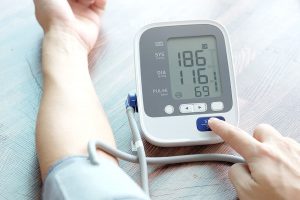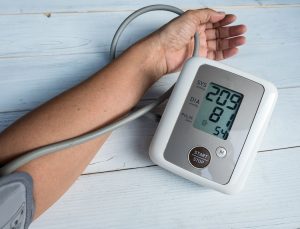4 myths about hypertensive crisis

There are many diseases, but mortality from diseases associated with the cardiovascular system exceeds mortality from cancer and infectious diseases, respiratory diseases, and so on.
One of the most striking manifestations of hypertension is a hypertensive crisis. What is it and what dramatic denouement can complete it? A hypertensive crisis is an increase in pressure that causes complications and clinical manifestations in humans. It can be impaired consciousness, respiratory distress, up to pulmonary edema, in some cases it can lead to a stroke or heart attack. It is important that hypertension can be completely asymptomatic.
What are some common myths about high blood pressure?
Myth 1: It is necessary to reduce blood pressure always and urgently.
This is a myth, because if we talk about the established diagnosis of arterial hypertension, then the main thing is not to reduce high blood pressure, but not to exceed the norm. But at the same time, one must understand that the pressure during the day does not always have to be 120 to 80, it changes dynamically. When a person is worried, it rises when he climbs the stairs or carries some weight from the store, it rises when he sleeps, it goes down and at night it can be 90 to 60. Therefore, blood pressure is not some fixed value, it is changes during the day.
Even very high blood pressure, especially if it is a hypertensive crisis, is very dangerous to sharply reduce. What’s happening? When the pressure is increased, all vessels, and primarily the vessels of the brain, constrict in order to reduce the flow of blood to the head. And when the pressure drops sharply, the narrowed vessels let the blood pass even worse. Therefore, a sharp drop in blood pressure is very dangerous and will worsen the course of a stroke. In case of a sharp increase in pressure, it is necessary to consult a doctor for monitoring and prescribing a treatment regimen.
Myth 2: pressure pills are bad for the liver.
Many people who are prescribed pressure medications by their doctors fear for their liver. But if we talk about arterial hypertension, practically none of the drugs that are used to lower blood pressure have a hepatotoxic effect. That is, they practically do not affect the liver. Blood pressure lowering drugs may have other side effects and contraindications. For example, some drugs are contraindicated in pregnant and lactating women. Some drugs may be contraindicated for kidney problems. But for the liver, most drugs are not only safe, on the contrary, they can improve liver function, which is impaired with long-term arterial hypertension.
Myth 3: Only the elderly can have high blood pressure or hypertensive crises.
Unfortunately, hypertensive crises and, in general, severe arterial hypertension can occur in young people. Most often, hypertension in young people is secondary, that is, it is caused by some other disease. In particular, for example, pheochromocytoma. This is a neoplasm of the adrenal gland, adrenal adenoma – a tumor that produces certain hormones. The level of adrenaline and norepinephrine in the blood rises, which provokes crisis rises in pressure, accompanied by severe symptoms: sweating, tremors, palpitations. Another cause, again associated with the adrenal glands, may be overproduction of glucocorticoid hormones, or Cushing’s syndrome. In the case of high blood pressure at a young age, it is imperative to undergo an examination, because there can be many reasons. Since in young people, most often, hypertension is secondary, then if you find the cause, curing it, you can return to normal.
Myth 4: The pressure from the pills has decreased, which means that you do not need to take more of them.
This is one of the most common and most dangerous myths. Arterial hypertension https://en.wikipedia.org/wiki/Hypertension is a disease that cannot be cured if it is the so-called essential arterial hypertension, when the cause of the increase is not established. There are diseases that cause an increase in blood pressure, for example, diseases of the kidneys, endocrine system, and then, if the underlying disease is cured, the pressure normalizes accordingly. If this is a common arterial hypertension, it is very difficult to cure it. And therefore, the main criterion for treatment is practically lifelong drug intake. As soon as a person stops taking them, the pressure can not only return to that initially high, but also jump up very sharply. This is the so-called withdrawal syndrome, which can lead to very serious complications, up to and including stroke.


